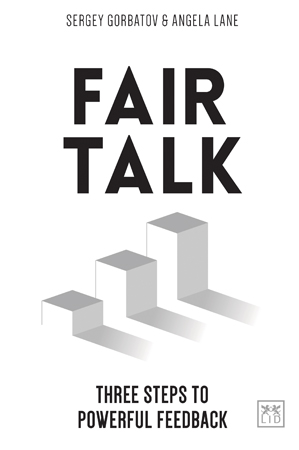One-sentence summary: Many managers struggle to provide impactful feedback (i.e. feedback that improves performance), but providing feedback is part of their job and it is a skill that can be learned.
Who is this book for? Everybody in HR who needs to advise managers (and lead by example!), and will be of particular interest to coaches/L&D. It is also a book that would be helpful to managers, both new and experienced, who want to improve their skills in this area
My take-aways from the book:
Part One – Feedback that Matters: Feedback is part of a manager’s role and whilst managers can often give reasons for not giving feedback (they don’t, can’t, or won’t), all of these reasons can be mitigated. There are lots of myths about feedback (for example, if feedback is good then giving feedback all the time must be better) which are wrong, and it is helpful to understand the evidence base for feedback. For instance, one study suggested that only half of feedback results in improved performance whilst a third of feedback diminishes performance. If you don’t understand the evidence, how do you know you’re in the half rather than the third!
Feedback needs to take account of why performance is the way it is. Improving performance can be difficult and there can be several factors hindering improvement (e.g. people can’t see the problem, they’re not motivated to change, or they’re struggling to change). Leaders need to be fair and credible, and honest. We live in a challenging and rapidly changing world (and the authors earn bonus points from me for not just labelling it as VUCA) and feedback is even more essential.
Part Two – Fairtalk Leader: Identify what matters
> Name it
> Refine it
> Check it
Check for accuracy/Control your biases
> Social
> Cognitive
> Organisational
Validate your opinion
> Collect information from others
> Do a thought exercise
A FairTalk statement covers why it matters, feedback on performance, and developmental feedback on what to do, and might sometimes be followed by some coaching questions.
Innefective feedback (that can make performance worse)is feedback that is baffling, bogus, or brutal (i.e. best left unsaid).
Feedback needs to be set in the right context and needs to be culturally sensitive (across a number of dimensions) and delivered with sensitivity and calmness.
Part Three – Fairtalk Culture: I’m not even going to attempt to summarise the take-aways from this section as they relate to organisational culture and I think every
reader will take away different things. My initial thought was that this section is more about creating a performance culture but I think that probably supports the premise of the book in establishing that feedback is a vital part of performance.
Would I recommend the book?
Yes, without hesitation. Even though this is an area that I am already familiar with, I learned new things, I’ve highlighted loads of things in the book, and I’ve got plenty of further reading to do.
It is well-researched, well-written, strikes a good balance between evidence and practice, and is well-referenced (something that I always appreciate). Each chapter ends with a 2-page “Expert’s opinion’, something that works really well. Highly recommended.
Ian Pettigrew, Kingfisher Coaching







